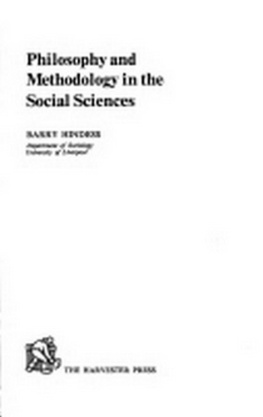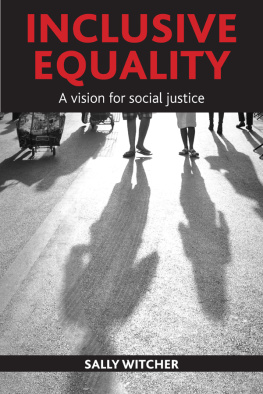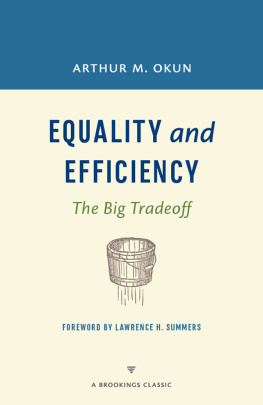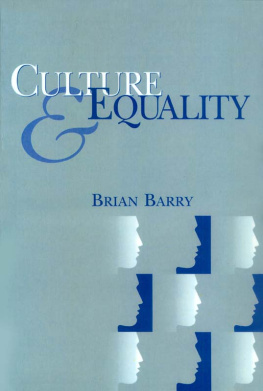Cover
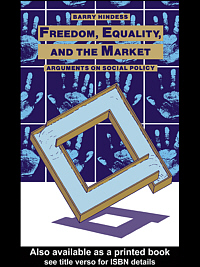
| title | : | Freedom, Equality, and the Market : Arguments on Social Policy |
| author | : | Hindess, Barry. |
| publisher | : | Taylor & Francis Routledge |
| isbn10 | asin | : |
| print isbn13 | : | 9780203220955 |
| ebook isbn13 | : | 9780203296424 |
| language | : | English |
| subject | ram--Politique sociale , ram--Politique economique , ram--Etat-providence , ram--Egalite , Social policy, Economic policy, Welfare state, Equality, Social policies |
| publication date | : | 1987 |
| lcc | : | HN18.H48 1987eb |
| ddc | : | 361.6/1 |
| subject | : | ram--Politique sociale , ram--Politique economique , ram--Etat-providence , ram--Egalite , Social policy, Economic policy, Welfare state, Equality, Social policies |
Page i
Freedom, Equality, and the Market
Page ii
This page intentionally left blank.
Page iii
Freedom, Equality, and the Market
Arguments on Social Policy
BARRY HINDESS

Tavistock Publications
London&New York
Page iv
First published in1987
byTavistock Publications Ltd
11 New Fetter Lane, London EC4P 4EE
This edition published in the Taylor & Francis e-Library, 2003.
Published in the USA by
Tavistock Publications
in association with Methuen, Inc.
29 West 35th Street, New York NY 10001
1987Barry Hindess
All rights reserved. No part of this book may
be reprinted or reproduced or utilized in any
form or by any electronic, mechanical, or
other means, now known or hereafter
invented, including photocopying and
recording, or in any information storage
or retrieval system, without permission in
writing from the publishers.
British Library Cataloguing in Publication Data
Hindess, Barry
Freedom, equality and the market:
arguments on social policy.
1. Social policy
I. Title
361.6'1 HN17.5
ISBN 0-422-79470-8
ISBN 0-422-79480-5 Pbk
Library of Congress Cataloging-in-Publication Data
Hindess, Barry.
Freedom, equality, and the market.
(Social science paperbacks; no. 349)
Bibliography: p.
Includes indexes.
1. Social policy. 2. Economic policy.
3. Welfare state. 4. Equality.
I. Title. II. Series:
Social science paperbacks; 349.
HN18.H48 1987 361.6'1 8614534
ISBN 0-203-22095-1 Master e-book ISBN
ISBN 0-203-29642-7 (OEB Format)
ISBN0-422-79470-8 (Print Edition)
ISBN0-422-79480-5(pbk.)
Page v
Contents
Acknowledgements | vii |
I | Introduction | |
II | Government and the economy | |
III | Citizenship and the market | |
IV | Citizenship and inflation | |
V | The contradictions of collectivism | |
VI | The strategy of equality reconsidered | |
VII | Marxism | |
VIII | Liberalism | |
IX | Freedom, equality, and the market | |
References | |
Name index | |
Subject index | |
Page vi
This page intentionally left blank.
Page vii
Acknowledgements
Many people have helped in the preparation of this book, often inadvertently. Some of its arguments were developed in the course of discussions with students and colleagues at Liverpool University, especially Jane Marceau and Olive Stevenson, and with members of the seminar on State and Politics at Birkbeck College. I am particularly grateful to Paul Hirst, Ann Jungmann, Elizabeth Kingdom, and Sheila Smith, who read and commented on the manuscript.
Page viii
This page intentionally left blank.
Page 1
I
Introduction
In 1981 the OECD published The Welfare State in Crisis, a collection of conference papers dealing, we are told, with a major contemporary problem. It is important to understand the fundamental nature of the crisis if wrong conclusions and presumptions are to be avoided (OECD 1981:5). The same title was used again in 1984, this time for an Open University set book. It begins with the claim that the welfare state throughout the industrialised West is in disarray. The outward signs of trouble are of course all too familiar (Mishra 1984: xiii). Today it is almost a commonplace to say that there is a crisis of the welfare state (but see Klein and OHiggins, 1985, for a note of caution). Accounts of the nature of the supposed crisis vary considerably. Perhaps the most straightforward is in terms of a combination of demographic and economic changes. On the one hand, the increasing proportion of old people imposes a growing burden of support costs on the working population. On the other hand, the slowdown in economic growth and the rise in unemployment since the 1960s had a considerable impact on expenditure on the social services. The expansion of welfare programmes came to a halt at the same time as increasing demands were made on the welfare services. Improved welfare could no longer be financed out of the increment of economic growth, and the level of welfare expenditure became a matter of political dispute. The question was raised in some quarters whether we could really afford a welfare state on anything like its present scale, and there were fears of taxpayers revolts.
In other accounts these economic and demographic factors are merely the occasion for a crisis that has more fundamental roots; that is, the problem lies in the very structure of the welfare state itself. On one side the welfare state is seen as a coercive apparatus
Page 2
tending to undermine the workings of a free society. In this scenario individuals are coerced into paying, through taxation, for services that are frequently unresponsive to their particular needs and which they have not personally chosen to use. Furthermore, the welfare state restricts the scope for market-based alternatives to its services so that opportunities for the exercise of freedom of choice are severely limited. From this point of view the crisis of the welfare state is a welcome development. Arthur Seldon, Advisory Director of the Institute of Economic Affairs, argues that the welfare state is an enemy of liberty. At one time it was regarded in Britain as not only morally sacrosanct but politically impregnable (Seldon 1981:47). By the time he published his pamphlet
Next page


